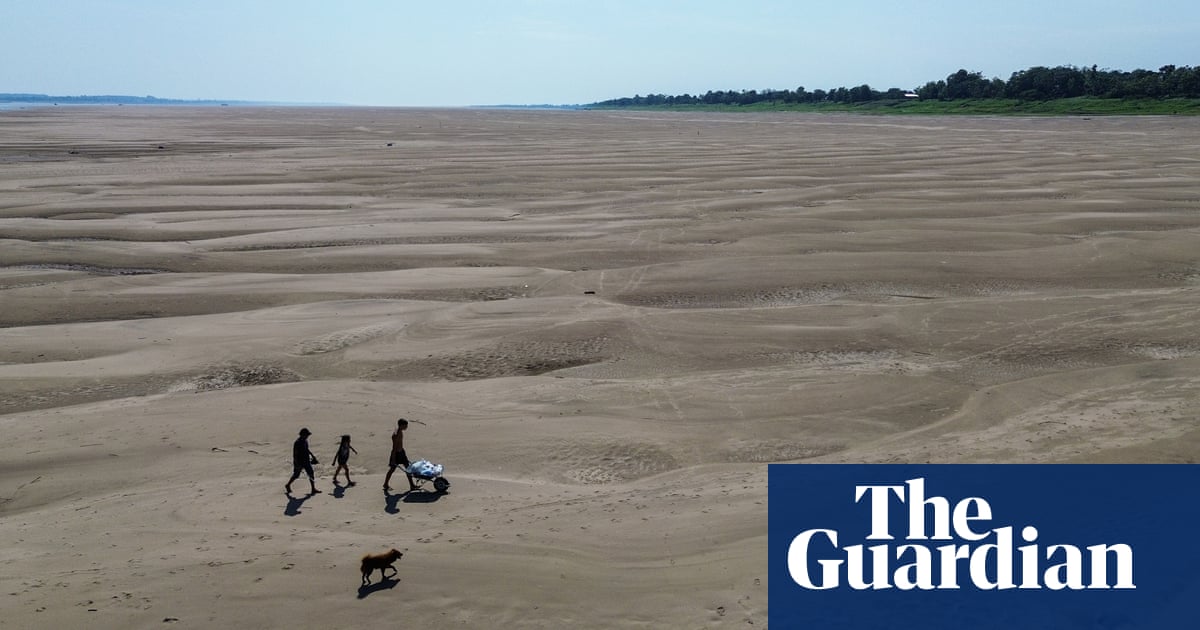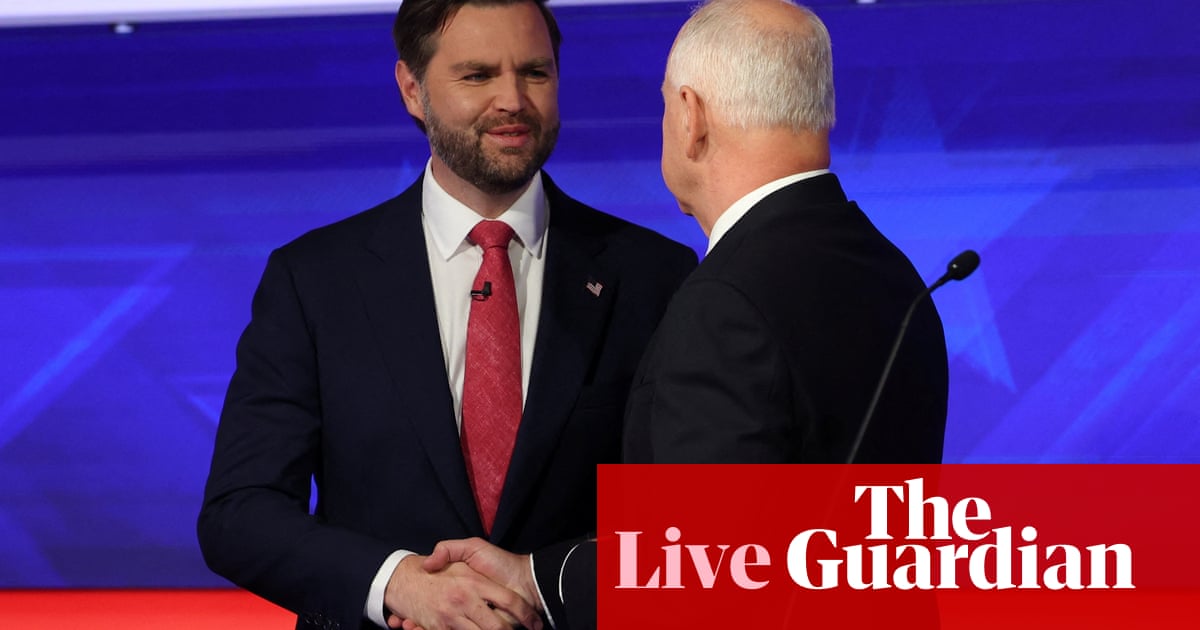The huge cuts in carbon emissions now needed to end the climate crisis mean it is âcrunch time for realâ, according to the UNâs environment chief.
An unprecedented global mobilisation of renewable energy, forest protection and other measures is needed to steer the world off the current path towards a catastrophic temperature rise of 3.1C, a report from the UN environment programme (Unep) has found. Extreme heatwaves, storms, droughts and floods are already ravaging communities with less than 1.5C of global heating to date.
Current carbon-cutting promises by countries for 2030 are not being met, according to the report, and even if they were met, the temperature rise would only be limited to a still-disastrous 2.6C to 2.8C. There is no more time for âhot airâ, the report said, urging nations to act at the Cop29 summit in November.
Keeping the international goal of 1.5C within reach was technically possible, said the report, but it required emissions to fall by 7.5% annually until 2035. That means halting emissions equivalent to those of the EU every year for a decade. Delaying emissions cuts only means steeper reductions would be needed in future.
Unep said countries must collectively commit to cut 42% off annual greenhouse gas emissions by 2030 and 57% by 2035 in their next UN pledges, called nationally determined contributions and due in February. Without these pledges, and rapid action to back them up, the 1.5C goal would be gone, the UN said.
However, the head of Unep, Inger Andersen, said it was misguided to fixate only on whether the 1.5C target was kept or not, because every fraction of a degree of global heating avoided would save lives, damage and costs: âDonât over-focus on a magic number. Keeping temperature as low as possible is where we need to be.â
The finance and technology to slash emissions exists, Andersen said, but âpolitical courageâ was needed, particularly from the G20 nations (excluding the African Union) that cause 77% of global emissions.
Andersen said the worldâs nations made strong climate promises at the Paris summit in 2015. âNow is the time to live up to that â itâs climate crunch time for real. We need global mobilisation on a scale and pace never seen before, starting right now, or the 1.5C goal will soon be dead and the âwell below 2Câ target will take its place in the intensive care unit.â
Unepâs last two annual reports highlighted âthe closing windowâ for action and the âbroken recordâ of failed promises. âNow weâre saying, this is it,â she said.
âThe irritating thing is technology is there for the grasping, as are the job and economic development opportunities,â Andersen said. âIt just takes political courage and some strong leadership.â
The UN secretary general, António Guterres, said: âWeâre playing with fire; but there can be no more playing for time. Weâre out of time.â He said global heating was supercharging monster hurricanes, bringing biblical floods, turning forests into tinder boxes and cities into saunas.
âGovernments must wean us off our fossil fuel addiction: showing how they will phase them out â fast and fairly,â he said, adding that levies on fossil fuels could help pay for climate action.
The Unep report found that faster rollout of solar and wind energy could provide 27% of the emissions cuts needed. âThatâs massive and this is a cheap, proven technology â itâs not a gamble to invest in,â Andersen said.
after newsletter promotion
Stopping the destruction of forests could bring another 20% cut, the report said. Much of the rest could come from energy efficiency and the electrification of buildings, transport and industry, as well as cutting methane emissions from fossil fuel facilities, which Andersen described as ânot hardâ.
The estimated investment needed to cut emissions to net zero is $1-2tn a year, according to the report, about 1% of the value of the global economy and financial markets. âWeâre talking a couple of percentage points that would be incremental in terms of renewal of ageing infrastructureâ in developed countries, said Andersen. But developing countries would need finance from rich nations, a topic at the top of the Cop29 agenda.
The global geopolitical situation was difficult, acknowledged Andersen, with conflicts in the Middle East and Ukraine, and tensions between western nations and Russia and China. But she said: âIf there is a space where the world has been able to meet, it is really the environment space.â
She cited a recent G20 meeting of environment and climate ministers. âThese are not the best friends, all of them, and yet they managed to have a [good] communique.â She said there had been significant green policy shifts in the US, China, Germany, India and Brazil, but a a much greater effort was required.
âThe sooner we strike out hard for a low-carbon, sustainable and prosperous future, the sooner we will get there â which will save lives, save money and protect the planetary systems upon which we all depend,â she said.
âWorld leaders continue to drag their feet, protecting the interests of the fossil fuel industry, while people are suffering right now. At Cop29, leaders must respond and act on their fair share of responsibility â especially wealthier nations who have fuelled this crisis for decades,â said Harjeet Singh, at the Fossil Fuel Non-Proliferation Treaty Initiative.



